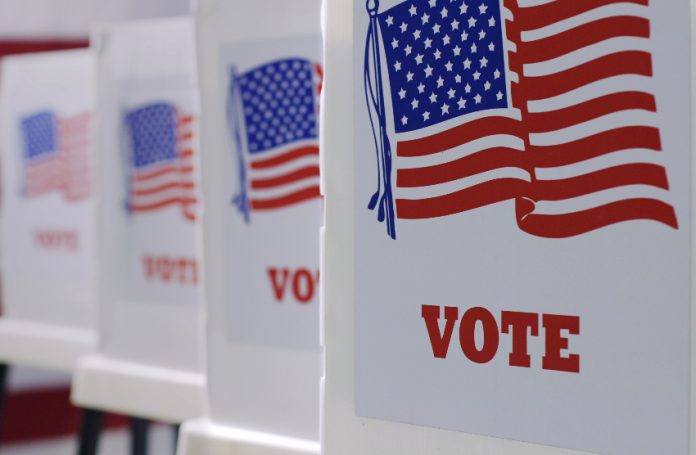We are fast approaching important elections in the United States in November. Are you a U.S. expat and wondering how to vote in the U.S. elections from Mexico? You will find resources below, but first, a few reasons your vote matters.
Why should I vote in the U.S. election, when I live in Mexico?
There are nearly 3 million Americans living outside of the United States who are eligible to vote. Voting in federal elections is a privilege afforded to all U.S. citizens, regardless of where they reside, and many states allow U.S. citizens abroad to also vote in local and state elections. Voters use their last place of residence in the United States to determine their voting jurisdiction, even if the property is no longer owned by the voter.
Americans living abroad have as much of a stake in U.S. election results as voters in the United States. They often serve as ad hoc representatives of the United States in the communities where they work and live, and have meaningful tax obligations in the U.S..
While people pay more attention during presidential election years, House and Senate races are equally important in the U.S. electoral system.
What are the key ways that the U.S. election outcome can impact Mexico?
There are few nations as intertwined economically, socially and culturally as Mexico and the United States. I believe there is no country more impacted by the results of the U.S. presidential election than Mexico.
For example, as each other’s top trading partner and leading investment destination, both Mexico and the United States have a great deal on the line in the 2026 obligatory review of the US-Mexico-Canada Agreement (USMCA).
Importantly, consensus is lacking regarding whether this exercise should be treated as a check-in or as an overhaul of elements of the deal. Depending on the approach taken, certainty around the trade and investment rules delineated in the USMCA could be at risk.
A potential Trump or Harris Administration will be under pressure to take aggressive steps on U.S. immigration policy, which should lead to a further tightening of the border going forward and a distinct difference in the rhetoric around immigrant arrivals, depending on who is the victor in November.
While there are many other ways the U.S. election will be relevant in Mexico, I would lastly highlight the next administration’s management of the U.S. economy. The candidates have different positions regarding tariff levels and independence of regulatory agencies and monetary policy, all of which could reverberate deeply in Mexico.
Will my vote actually be counted?
Not only are overseas votes counted, in some cases they have been definitive in U.S. presidential election outcomes. Given the electoral college system, votes are particularly critical in swing states such as Michigan, Pennsylvania and Wisconsin, but in a representative democracy, all votes matter. U.S. citizens are foregoing the opportunity to shape the policy orientation in Washington if they decline to vote.
To illustrate the importance of the overseas vote, in 2020, Georgia’s electoral college votes were allocated only after over 1 million mail-in votes, including from overseas, were counted. 19,000 Georgians living abroad voted, and Biden won the state by just 11,779 votes.
How do I vote from Mexico?
U.S. elections are managed at the state level, meaning rules vary from state to state. This can make it confusing, even if you live in the United States.
If you are already registered to vote, it is a matter of requesting your overseas ballot. The deadline for making this request varies according to the state where you are registered.
If you are not registered to vote, then it is not too late to register. For example, in Michigan, voters can register by mail or online 15 days before Election Day. In other states, there is a 30-day deadline. You can easily register through the Federal Voting Assistance Program.
Depending on your state’s rules, completed ballots can be returned via electronic means, fax, courier, or postal mail. The U.S. Embassy or Consulates can mail ballots for voters, and they recommend ballots be mailed by October 4 to ensure timely delivery. Consulates have voting assistance officers who can help with any questions. Further information is available here.
What resources are available if I need help figuring out how to vote?
The consular voting assistance officers are one resource, but the easiest one-stop-shopping way to initiate your vote is to visit Vote from Abroad, an educational site that does not take a partisan position on candidates. While the site is funded by Democrats Abroad, there is no partisan content on the site, only information for Americans overseas on how to register, receive ballots etc. The site also offers a chat feature to request assistance.
Kellie Meiman Hock is a former U.S. diplomat and trade negotiator, serving in Colombia, throughout Brazil, and at the Office of the U.S. Trade Representative at the Executive Office of the President. She currently is Senior Counselor at McLarty Associates, where she has worked for over two decades with investors and stakeholders operating throughout Latin America, including Mexico.
